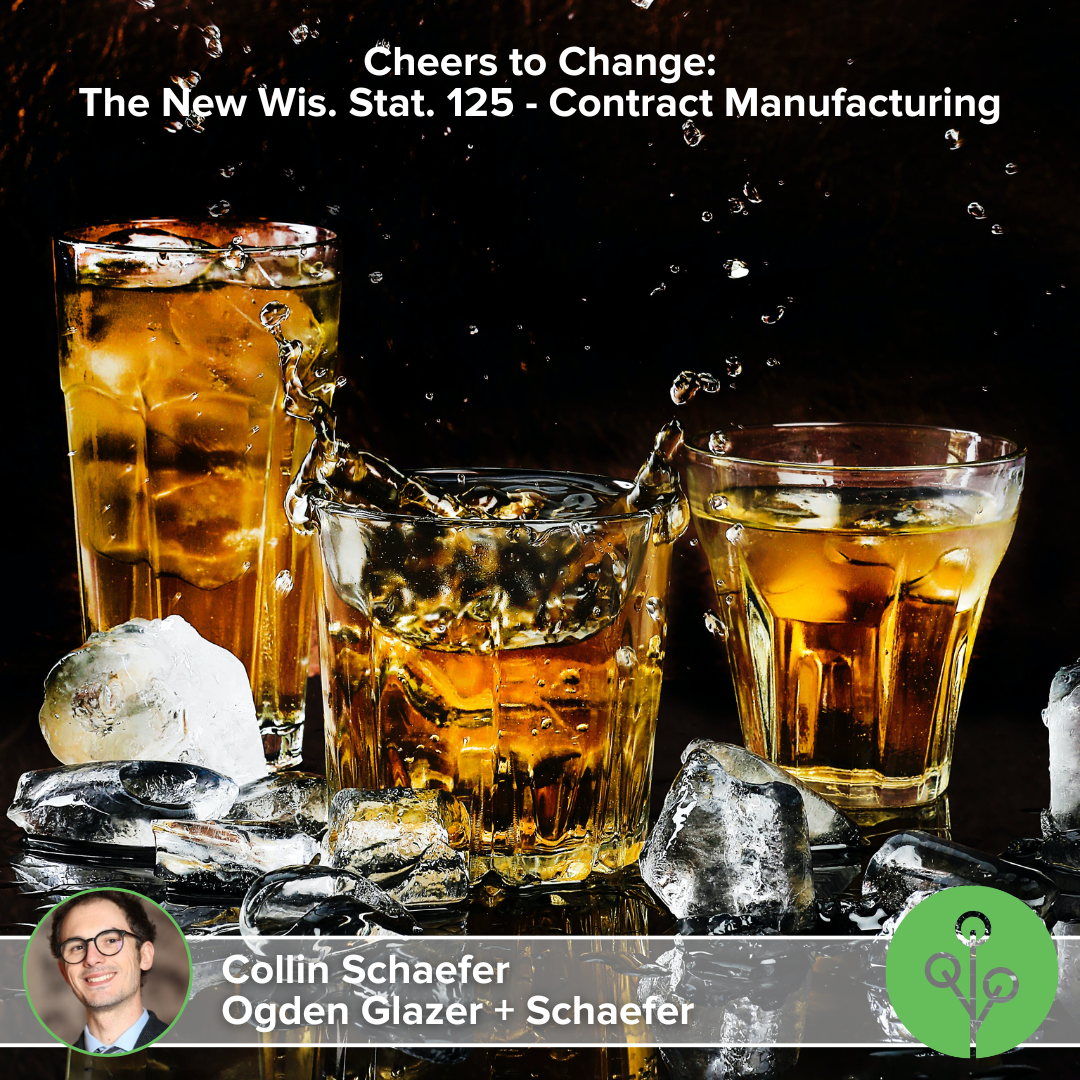02/15/24 Update: A previous version of this post mentioned that product produced under a Contract Production agreement (#2 below) could be counted towards a Host’s total production volume for the purposes of Full Service Retail sale privileges under the new statute, that is not the case. Product produced under a contract production agreement\recipe brewing agreement counts towards neither the Host’s nor the Guest’s production for Full Service Retail privileges under the statute – yet another reason contract hosts and guests might consider an Alternating Proprietorship under #1 below.
In follow up to my previous post about the forthcoming (new and improved) Wis. Stat. Ch. 125, I wanted to write a quick post about changes and enhancements to the ability for alcohol producers (breweries, wineries and distilleries) to contract manufacture in Wisconsin.
Historically, only breweries were able to contract manufacture for other breweries in Wisconsin. In practice, this meant that a brewery with excess capacity could contract with another brewery in need of product, and produce it for them. This generally took the form of either A) an Alternating Proprietorship or B) a Recipe Brewer. The Recipe Brewer designation was (and still is) something unique to Wisconsin, but with the changes to Wis. Stat. 125, now wineries and distilleries can take advantage of the same relationships.
That’s not to say that distilleries and wineries didn’t contract manufacture prior to this law change, but…the business relationships were certainly in more of a gray area, and not blessed by the Department of Revenue (“DOR”). Now, however, that’s changed.
Under the new Wis. Stat. 125 – producers of all types have the ability to enter into any of the following types of relationships:
- Alternating Proprietorship – Basically, you can think of this as a guest producer (“Guest”) operating on the premises and with the equipment, of an already licensed producer (“Host”). For all intents and purposes, the Guest producer has all of its own permits, and pays all of its own excise taxes at both the Federal and State level. The paperwork on the frontend is a little more involved, but the benefit for the Host and Guest is that their operations, in the eyes of the government, are totally separate. In practice, the Host is still producing and doing most of the actual production work, but for the purposes of paperwork and tax filings, everything is separate. For the Full Service Retail (“FSR”) privileges that we discussed in my previous post, the Host’s and Guest’s production volumes are counted separately – so the benefit for the Guest is that they can operate a separate tap room and it can serve beer, wine, and spirits.
- Recipe Brewer \ Contract Producer – It remains to be seen how these new rules are exactly implemented by the DOR in practice for distilleries and wineries, but assuming the DOR adopts the same setup that Recipe Brewers currently use – a Guest will hold a wholesale permit with the Federal Government, and then will hold its own production permit with the State of Wisconsin. That means, that the Host will pay federal excise tax and control the brand registrations on file with the Alcohol Tobacco Tax and Trade Bureau (“TTB”) – while the Guest will be responsible for State excise tax. This is a great setup that has served Recipe Brewers in Wisconsin very well, and we hope that the same proves true for wineries and distilleries. For new entrants to the industry, this is a great option – but scaling and distribution for the Guest can be difficult (in other words, it becomes difficult to get the product out of State because the Guest doesn’t hold a production permit at the Federal level). For the purposes of FSR, production counts neither towards the Host, nor the Guest so while the Guest might be able to open its own taproom, it won’t be able to offer beer, wine, and spirits there – only what is produced by the Host. Hosts additionally will not be able to count guest production towards their total production volume for FSR purposes.
- Licensing Agreement – This is totally new, at least in the form that it will exist under the new Wis. Stat. 125. For that reason, I’m going to punt on this section until more concrete rules are developed by the DOR. That being said, a Licensing Agreement could be very exciting depending on how the DOR implements the statute and builds rules around licensing relationships.
Thanks for reading!

